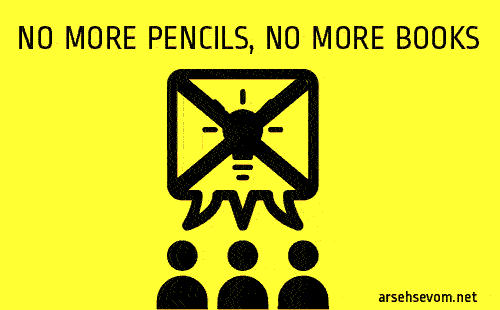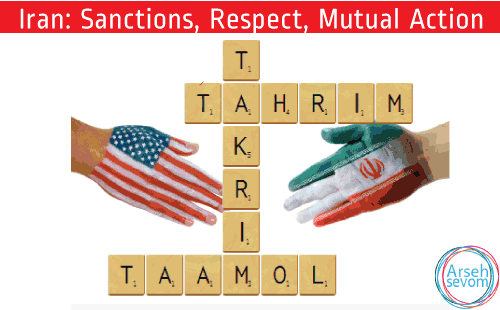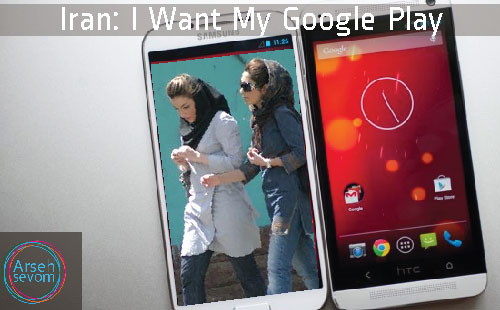
Iran Civil Society – Sanctions Block Delivery of Medication to New Policies Limit Educational Choices for Girls
August 7, 2012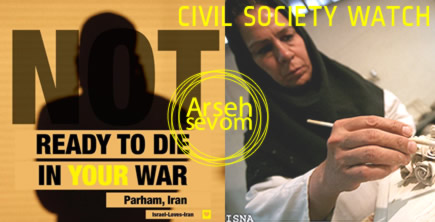
Iran Civil Society Review–Women Banned from Studying, yet Leading Households
August 21, 2012It was a week that began with medals and international sportsmanship yet ended with disaster as two earthquakes hit an area close to Tabriz in Northwestern Iran. Netizens were shocked by the lack of Iranian media coverage of the quakes and an MP called for direct donations and volunteerism. Many inside and outside Iran are using social media to organize and report on assistance to the quake stricken areas. The Supreme Leader turns a deaf ear to pleas from student organizations to “open prison gates” and a news agency affiliated with the Revolutionary Guards acknowledges the mass executions of the 1980s. There are questions about a doubling of US wheat imports while sanctions blocking the payments for needed medications are in place. A community exchanges waterpipes for sports equipment and Islamic space jurisprudence is now a thing.
Our Hearts Are with You, Azerbaijan
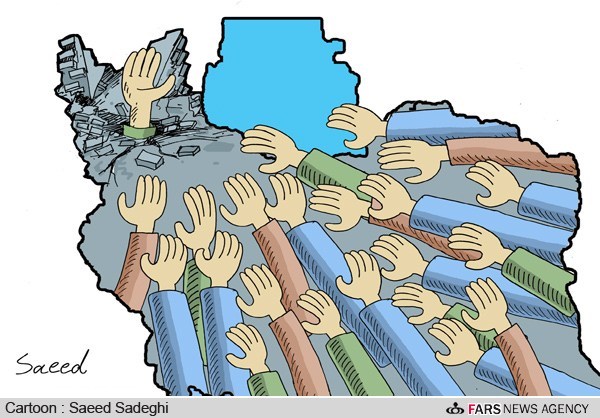
Two consecutive earthquakes occurred over the weekend in the province of Eastern Azerbaijan, in Northwest Iran. At the time of this report, the death toll is more than 300, with thousands injured, most of them women and children.
Exiled journalist, Masih Alinejad, reached parliament member Abbas Falah Babajan who represents two of the villages hard hit by the quake.
Babajan told Alinejad [our translation]:
More than 50% of the villages have been ruined, We have not received any relief from other places… the survivors have been relocated and are in urgent need of tents, warm clothes, fresh food, dry food, water.
I ask people from all over Iran not to hand their help to the Red Crescent… I ask people to bring their donations in person as volunteer groups to the survivors; otherwise, I fear there could be more loss of life.

Click here for photos from the villages hardest hit by the earthquake.
State TV on Mute
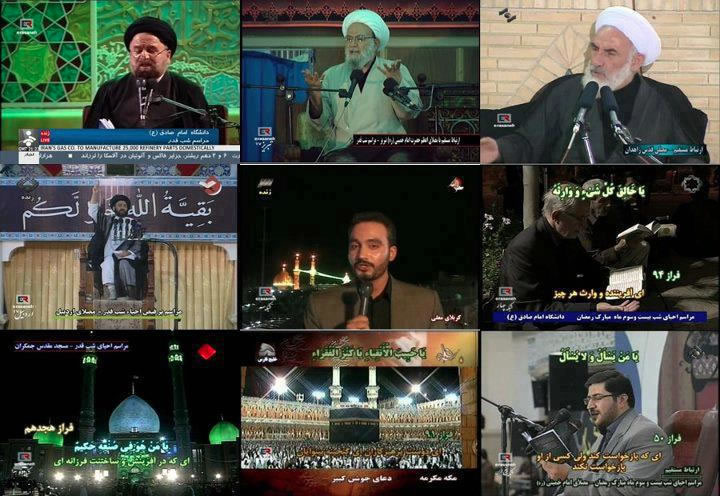
All over Iran, people were dismayed at the lack of coverage by state television. This image featuring apparently screen captures from Iranian State tv was takenwhen many were looking for news updates on the earthquakes made the rounds in the cyberspace. In the snapshot all channels are broadcasting seemingly religious programming and live reports from religious sites such as Karbala in Iraq and Mecca.
A comment posted under the image reads:
Trust me! This is my town, Andimeshk, [in Western Iran]. The Red Crescent is closed. The national Blood Transfusion Organization office is closed. Why? Because these people were staying up last night chanting “Al-afv” [a religious ritual for specific nights in Ramadan] if you don’t believe me make a phone call and see for yourself….
Another much-liked comment reads:
One of the reasons that the Iranian state-run media do not cover the news of the earthquake as they should is because they never deal with issues realistically. An earthquake on the 22nd of Ramadan [a religious holiday] between the nights of Ahya and Ghadr is in direct conflict with their official advertising campaigns. The [State] media is in the hands of those who claim that earthquake does not have scientific reasons and is, instead, caused by people committing sins.
An MP from Meshkinshahr, Younes Asadi, criticized the IRIB for their coverage of the earthquake and said, “The officials of the Islamic Republic of Iran Broadcasting should be ashamed.”
Global Voices has a summary of some of the responses to the responses to coverage on Iranian state television.
The blogosphere was filled with reports from all over the country of people in Iran rushing to open relief centers to give blood and make other donations.
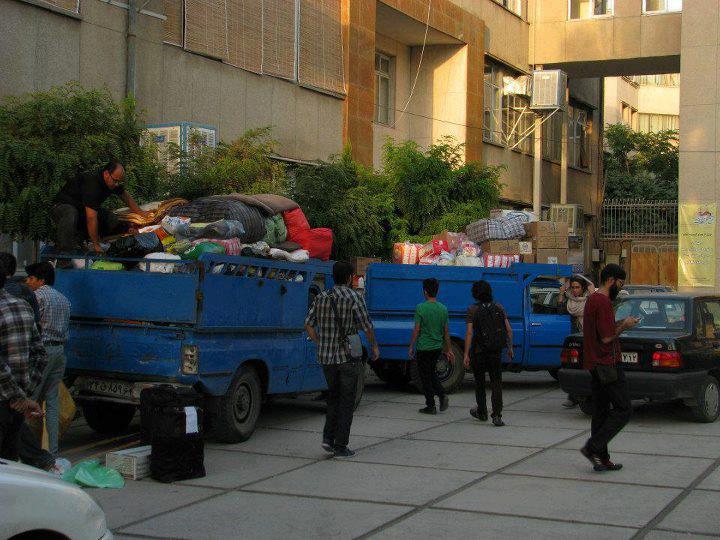
These trucks are heading for Azerbaijan filled with donations collected by student groups from Mashhad in North Eastern Iran.
Pages like this one (Help for victims of the earthquakes in Azerbaijan) have been created to organize people’s donations independently from official charity organizations.
The Society for Protecting the Rights of the Child, founded by Shirin Ebadi, has published a bank account number for the collection of donations for those in real need.
UPDATE: The British Red Cross explains why they aren’t asking for funds to assist with the earthquake in Iran.
The Iran Red Crescent is very well prepared to respond to such emergencies. The National Society in neighbouring Turkey is on standby, and other National Societies around the world have offered to help if needed. The Iran Red Crescent has not requested support from other National Societies.
Student Group to IRI Leader: Come Listen to the Students
The student group, Office for Consolidating Unity, addressed the Islamic Republic’s Leader, Ayatollah Ali Khamenei, pleaded with him “to open prison doors in order to hear the real voice of students…”
After Satellite it is Hubble-Bubble Time
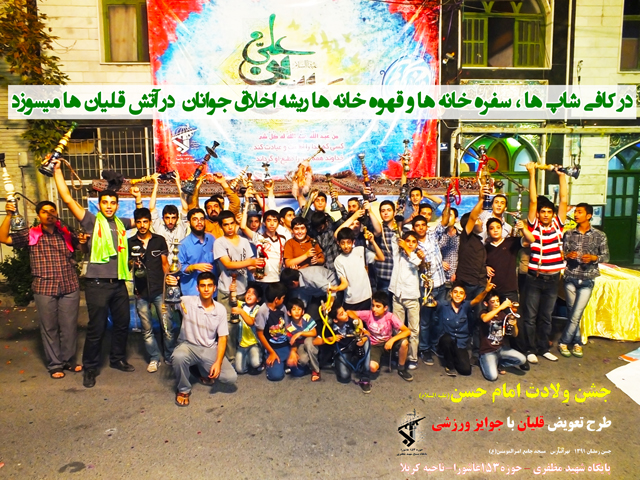
Following the example of collecting satellite receiver units in Tehran, a mosque in Southern Bushehr launched a similar campaign to “change hubble-bubbles [water pipes] for sports equipment”.
Here is a photo-report of the event.
Wheat Imports from U.S. Doubled?
The Islamic Republic Customs Administration (IRICA) released statistics showing that the “import of wheat from other countries including the USA has been doubled.” This raised questions among activists and analysts questioning why vital medications cannot be purchased due to banking restrictions, as mentioned in our review last week.
At the same time, some economists doubt that statistics released by the Iranian customs organization are based on facts. Speaking to Roozonline, Jamshid Asadi, says, “It is improbable that Iran’s wheat imports have been doubled.” Asadi adds, “Unless they have purchased American wheat circumventing the sanctions through a few middle dealers….”
Iran Tribunal Leads to Acknowledgment of 80s Mass Executions
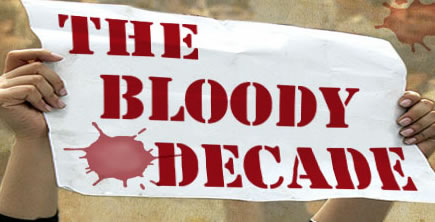
Finally, perhaps for the first time in its history, Fars News Agency, which is close to Iran’s Revolutionary Guards, has acknowledged the mass executions of the 80s. Criticizing Iran Tribunal for investigating the execution of political prisoners during the 80s, Fars News writes:
The reason for writing this note is the anniversary of a Fatwa issued by Imam Khomeini about the jailed members of the MKO, which, in reality, was a rescuing fatwa. [The same fatwa that set the grounds for the mass executions] a fatwa that helped pluck out the eye of sedition at the time.
The piece justifies the executions due to an international law, known as “enemy character,” claiming that all rules applicable during a state of war may be applicable to individuals in contact with enemy forces.
The Tribunal has at last led to an acknowledgment from the Islamic Republic that the mass executions actually took place. That was unprecedented until now.
Thinking of a Higher Degree? Consider “Space Jurisprudence”
But anyhow, it’s important for Muslims to know how to conduct their religious duties in space. I will tell you now, since people are floating in space, if the body of a female astronaut touches the body of a male astronaut that would not be a problem. But it is necessary to join them in temporary wedlock before traveling to space to be on the safe side.
— Dialogue from the film Marmoulak
For those of you who have seen the comedy Marmoulak, which features the escapades of an escaped convict posing as a cleric, it should come as no surprise that Islamic Space Jurisprudence is now on offer. The Education deputy of Khorasan Hawzah (Shiite Seminary) announced the opening of a special higher degree program in “Islamic Space Jurisprudence.”



